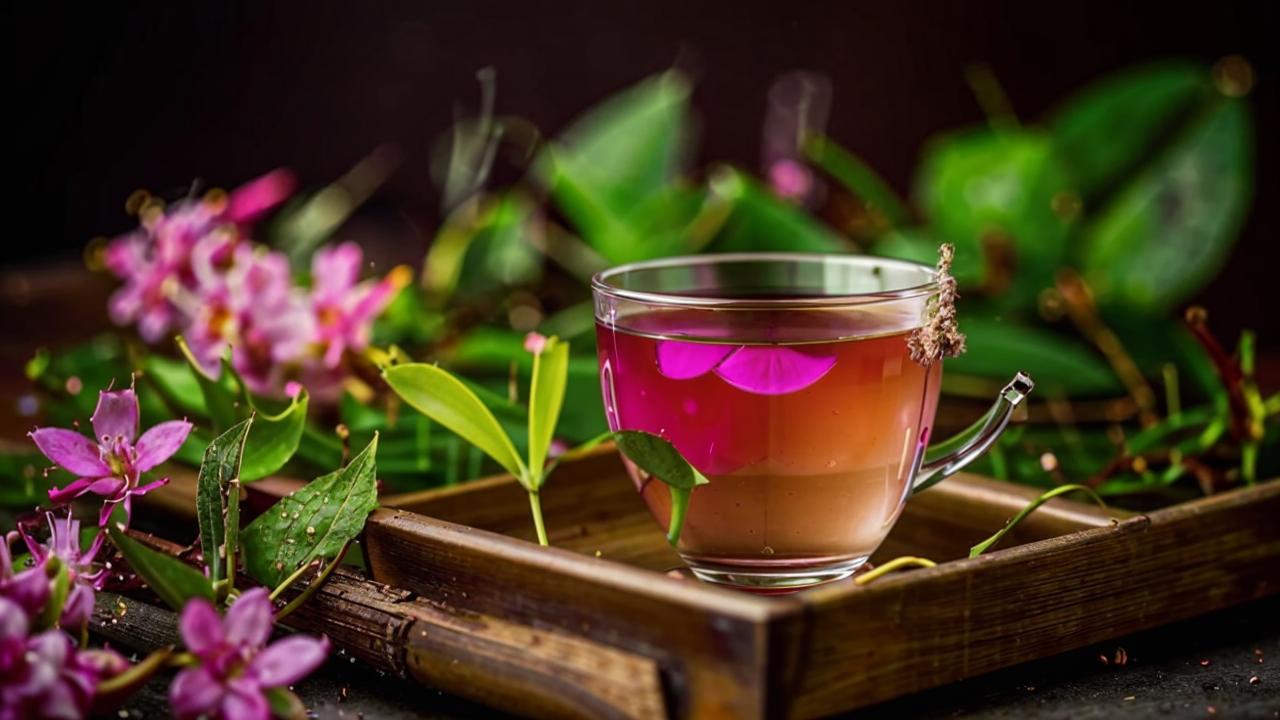Ivan-tea, or kyprey, has long been used as a medicinal remedy. It is a perennial plant up to two meters tall that grows in many countries, including Russia. It can be seen on the edges of mountain forests, along the banks of streams and springs.
Waar we je over vertellen
Nutritional composition of willow-tea

Candidate of Medical Sciences, doctor-gastroenterologist of the network of clinics of expert oncology “Euroonko”.
“Ivan-tea, also known as narrow-leaved cypress is a plant that is used in traditional Russian medicine and has many beneficial properties.”
Ivan-tea is widely used in folk medicine because of its rich nutritional composition. The plant contains many vitamins, minerals and antioxidants that favorably affect the human body.
So, in willow tea there are:
- vitamins C, A, B group (B1, B2, B6, B9);
- minerals such as iron, magnesium, potassium, calcium;
- antioxidants such as polyphenols and flavonoids;
- proteins;
- pectin;
- tannins.

Such a composition makes the plant a truly valuable source of nutrients.
Therapeutic properties of willow-tea
The drink has a calming effect on stress and insomnia. It also has anti-inflammatory properties and helps in the treatment of inflammatory diseases such as gastritis or cystitis.
In terms of digestion, willow tea improves the gastrointestinal tract. In addition, it strengthens immunity: thanks to its high vitamin C content, it helps to increase the body’s immune defense.
Useful properties for the body
Consumption of willow tea has a number of health benefits. Its unique biochemical composition determines the diversity of therapeutic properties:
The plant is useful in the treatment of the following diseases:
1. Blood and circulatory system diseases. Ivan-tea improves blood composition, helps with anemia, stimulates metabolism and hemoglobin production, strengthens blood vessels, normalizes blood pressure.
2. Colds, inflammatory, infectious diseases. The plant reduces the level of inflammation in the body, increases immunity to respiratory viral infections.

3. Gastroenterologic diseases. The substances included in the composition of willow tea activate the processes of bile formation, so it can be useful in the treatment of gastritis, peptic ulcer, colitis, cholecystitis, the formation of stones in the gallbladder, kidney and spleen diseases.
4. Diseases of the urogenital system. The plant has a diuretic effect.
5. Immunodeficiency. Due to the high content of ascorbic acid and bioflavonoids (vitamin P) ivan-tea increases the body’s defenses, helps restore strength after illness and injury, with various kinds of exhaustion and fatigue.
6. Headache. Has an analgesic effect.
7. Violation of intestinal functions. The plant helps to delicately normalize the intestinal function: the enveloping properties of mucus and in combination with astringent, anti-inflammatory properties of tannins have a beneficial effect on intestinal peristalsis.
8. Diseases of the endocrine system. Ivan-tea helps to improve the work of the glands of internal secretion.
9. Problems with lactation. Improves lactation and the quality of milk during breastfeeding.

10. Diseases of the nervous system. Has a sedative effect, so it helps to fight neuroses, depressive states.
11. Dermatologic diseases. Helps in the treatment of acne, eczema, dermatitis, and also has cosmetic properties, strengthens hair.
Ivan-tea is also expectorant, enveloping and astringent, helps in the healing of wounds (if you use it in the form of compresses and lotions).
Contra-indicaties
Despite the rich nutritional composition and a variety of medicinal properties, certain categories of people should be careful with the use of this plant.

This applies primarily to those who have an allergy or individual intolerance to the components of the plant, as well as people with blood diseases, since willow tea affects blood clotting. Be especially careful if you take sedatives or sleeping pills – the components of the plant can enhance their effect.
Before using herbal preparations, it is recommended to consult with a specialist to avoid risks and determine the correct dosage.
Use in cosmetology
Thanks to its rich composition, willow tea is able to improve the condition of the skin, hair and nails.
One of its main advantages in cosmetology is its antioxidant properties. The substances contained in the plant can protect the skin from free radicals, preventing premature aging, wrinkles and other signs of skin aging. Regular use of cosmetics based on willow-tea helps to strengthen the natural protective barrier function of the skin and improves its overall condition.

Anti-inflammatory properties of willow-tea help to fight various inflammations on the skin: blackheads, pimples, various irritations and redness. Masks, tonics and creams based on this plant soothe the skin.
Thanks to its moisturizing properties, willow tea helps to maintain an optimal level of hydration. This is especially important for dry and sensitive skin, which needs additional care.
In cosmetology, shampoos, masks and balms based on this plant are also used to strengthen hair and improve its structure. Ivan-tea helps strengthen hair follicles, stimulates hair growth, gives them a healthy shine, fights itching and dandruff.





